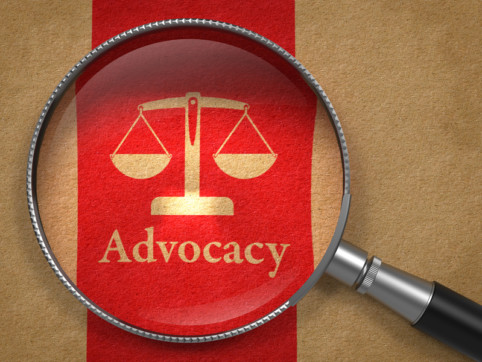Advocating Nonprofit Advocacy: The Myth That 501(C)(3)s Can’t Engage in Advocacy

When I encounter 501(c)(3) organizations that would be suited well to engage in online advocacy but don’t currently have programs set up, I tend to hear the same story, “We don’t want to engage in advocacy because we don’t want to risk losing our 501(c)(3) status.” It is a common misconception amongst nonprofits today that advocacy brings a risk of losing nonprofit status, but this perception is pure myth.
According to the Internal Revenue Service (IRS),
In general, no organization may qualify for section 501(c)(3) status if a substantial part of its activities is attempting to influence legislation (commonly known as lobbying). A 501(c)(3) organization may engage in some lobbying, but too much lobbying activity risks loss of tax-exempt status.
Legislation includes action by Congress, any state legislature, any local council, or similar governing body, with respect to acts, bills, resolutions, or similar items (such as legislative confirmation of appointive office), or by the public in referendum, ballot initiative, constitutional amendment, or similar procedure. It does not include actions by executive, judicial, or administrative bodies.
An organization will be regarded as attempting to influence legislation if it contacts, or urges the public to contact, members or employees of a legislative body for the purpose of proposing, supporting, or opposing legislation, or if the organization advocates the adoption or rejection of legislation.
Organizations may, however, involve themselves in issues of public policy without the activity being considered as lobbying. For example, organizations may conduct educational meetings, prepare and distribute educational materials, or otherwise consider public policy issues in an educational manner without jeopardizing their tax-exempt status.”
What This Means for Engaging in Nonprofit Advocacy
Only when lobbying activities become “substantial” does a possibility arise where your nonprofit status can be revoked. This means that nonprofits are permitted to lobby on a “limited basis,” which equates to “20 percent of the first $500,000 of exempt purpose expenditures up to a cap of $1 million on total lobbying expenditures.”[1]
Where this “fine line” is drawn often depends on the “federal administration in office”.[2] Essentially, this means that as long as you are not exceeding that 20 percent up to $1 million, it is fair game to engage in advocacy as a nonprofit organization.
Rules for a 501(c)(3)
Sometimes, there is confusion as to what it means to engage in advocacy as a 501(c)(3) organization versus other types of organizations that have to abide by Federal Election Commission rules. The typical rule of thumb is that if you don’t explicitly call out political candidates by name, direct your advocacy toward a specific candidate for political office, or attempt to influence an election in any way, you are still engaging in 501(c)(3) advocacy in the proper way. If you cross those lines, you are then moving into the territory of a 501(c)(4) and/or 527 organizations.
Will your nonprofit lose supporters if it engages in politics?
Perhaps you may lose some support, as Stephen Siedel, a member of Habitat for Humanity’s advocacy taskforce suggests, “[p]eople don’t like politics. We wonder if we go down that road, will we lose folks?”[3] Others worry about a loss of corporate support if the nonprofit organization becomes “too political”. But despite all of these worries, there is another concern you need to weigh: what if you don’t engage in advocacy?
Often, engaging in advocacy means a connection to public funding. Grants and other agency funding may get pulled from legislative budgets due to the need to cut programs. Advocates may choose to send their donations elsewhere, to an organization that is engaging in advocacy on issues that also affect the nonprofit who is choosing not to engage in fundraising. By not engaging in advocacy, you could be leaving space for another less knowledgeable, less connected organization to create competitive pressure on your organization’s funding and supporter base .
When an organization’s attention to perfecting its own programs overwhelms its focus on achieving long-term social change, it enters the ‘social entrepreneur’s trap’. This is when a nonprofit seeks to improve or expand its own programs at the expense of not leveraging the organization’s expertise and other capabilities for field-building, policy-making and broader societal change. – Michael Brown, cofounder of City Year [4]
As you can see, capable nonprofits not only can but should engage in a robust advocacy strategy. Stay tuned for my next post, where I’ll cover the ways advocacy can make a measurable difference for your organization and give you a list of action items to get started.
[1] & [2]Anheier, H. K. (2005). Nonprofit Organizations Theory, Management, Policy (1st ed.). New York, New York, United States: Routledge.
[3] & [4]Crutchfield, L. R. (2008). Forces for Good: The Six Practices of High-Impact Nonprofits. San Francisco, California, United States: Jossey-Bass.
